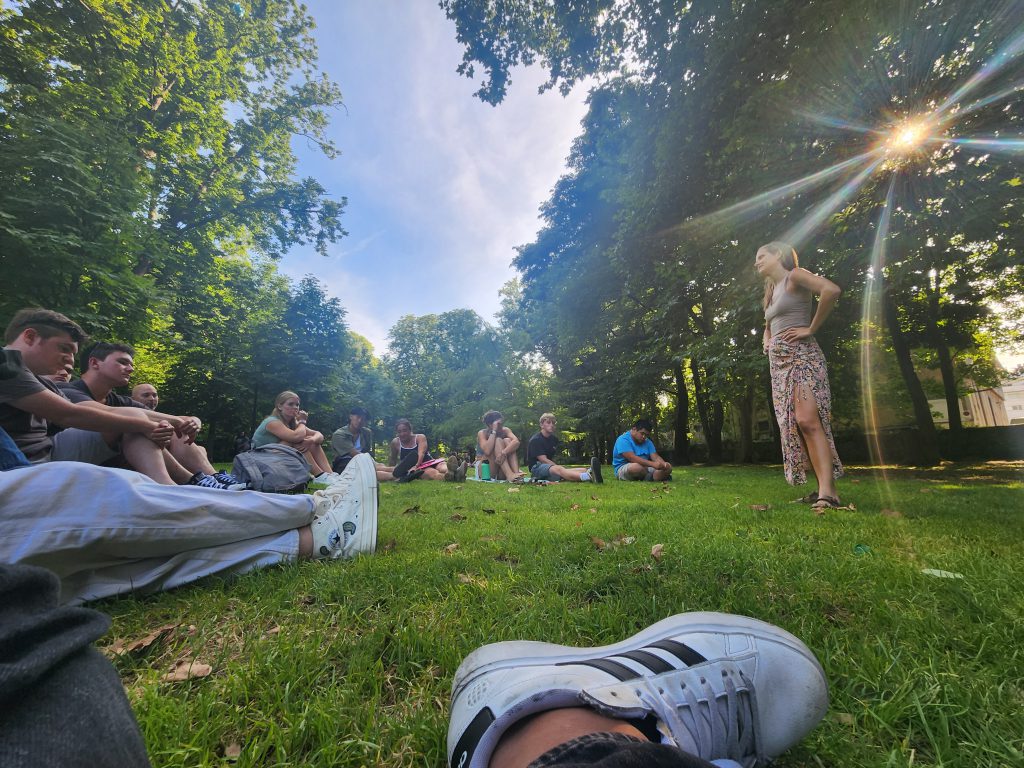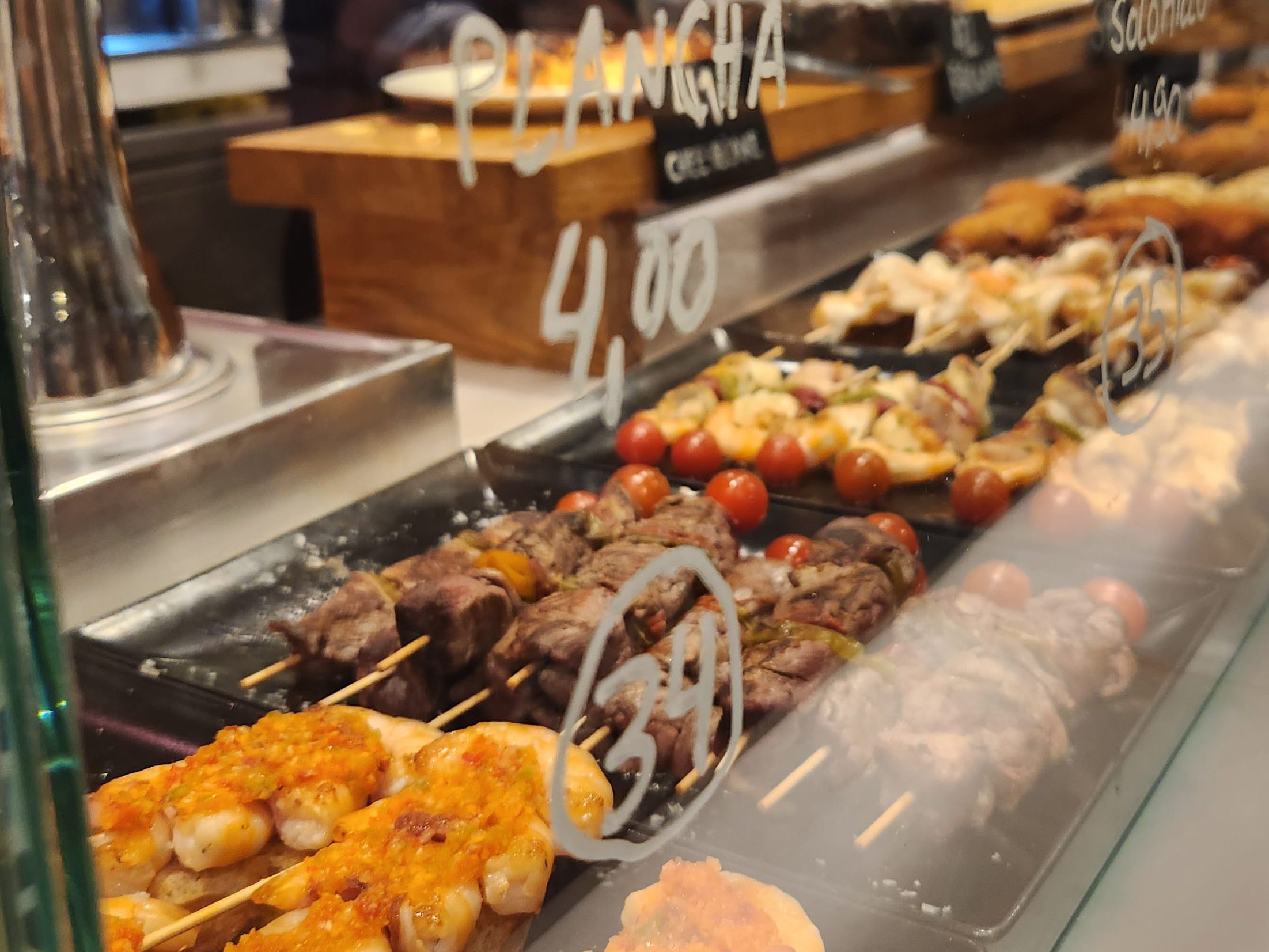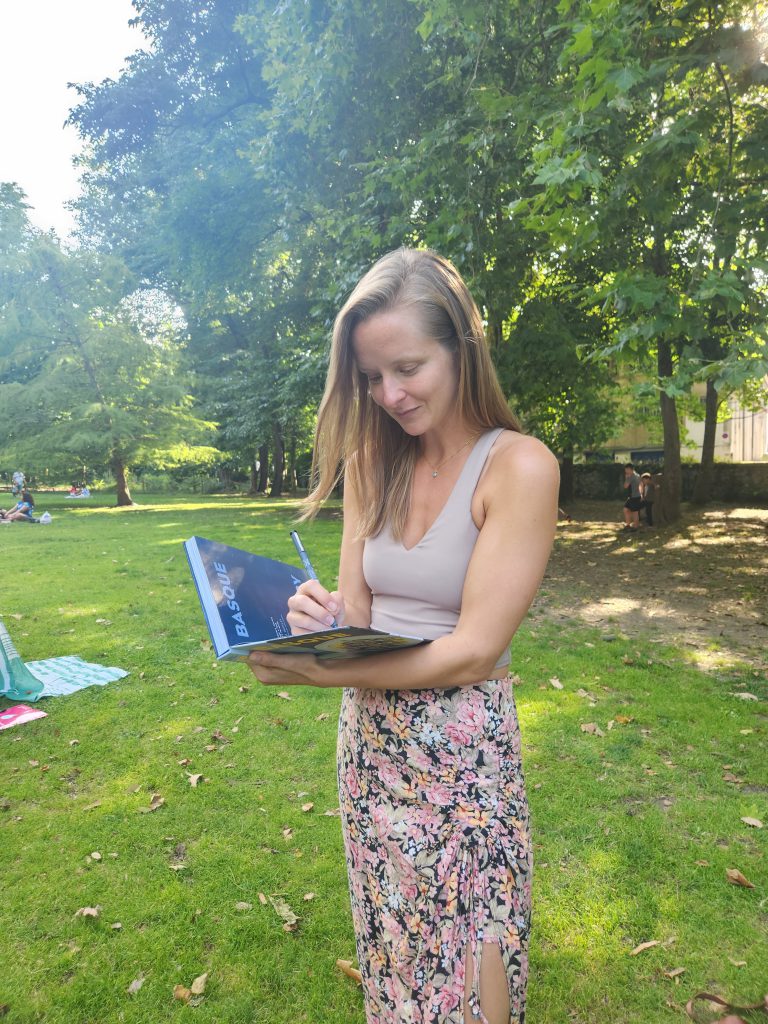It’s no exaggeration to say that San Sebastian is one of the food capitals of the world. Filled with endless pintxo bars and restaurants (of which eight have earned at least one Michelin star), the city is known for its unique Basque cuisine soaked in rich culture. However, in spite of this fact, only a few works exist that truly examine the culinary history behind each pintxo plate that sits behind the glass case at the bar. In comes Marti Buckley, an Alabama native who has been living in San Sebastian for the last twelve years. In 2018, her book Basque Country was published, bridging the gap between Basque cooking and the American audience.

While sitting on the ground of Cristina Enea Park, we were able to hear Buckley’s story first-hand, from how she fell in love with the Spain, took a chance, and succeeded in establishing San Sebastian as her home. She then delved into the three-year writing process that took place before her book’s publication, where it was explained as to how determined she was to accurately represent the seven provinces of the Basque Country. From interviewing local chef, noting each dishes different preparations, to countlessly trialing her recipes to perfection, we truly learned the lengths of Buckley’s research.
A dish could be prepared in a multitude of ways, with each chef having their own take of what’s best. Not only that, dishes could wildly differ depending on the province they’re prepared in. After years of research and test runs in the kitchen, Buckley was able to curate a set of recipes that is accessible to home cooks, with an American audience specifically in mind. The reasoning being, she explains, was because even when she herself was a student, there lacked publications about the Basque Country in general and so she wasn’t really able to know what to fully expect during her time abroad. Determined to express the experiences she came across, along with her background as a cook and writer and with her years of living in San Sebastian, Buckley had taken on the challenge to be the one to spread more knowledge of Basque cuisine.

The discussion with Buckley was eye-opening as I found it fascinating in how the events in her life have shaped it to what it is today. Her cultural comparisons brought new perspectives, with the one standing out to me the most being the differences in table customs between San Sebastian and the United States.
For example, Buckley emphasises the contrasting views in how the Basque view food. In Spain, food is appreciated and savoured slowly, with it being common to spend hours at a restaurant for a single meal. Food is cherished for what it is, with the time and effort behind each bite is easily recognized. Bonding over food while sitting at the table with others also promotes togetherness and a stronger sense of community, raising appreciation of living in the moment. On the contrary, in the U.S. it is fairly common to rush through a meal as food is simply viewed as a means to gain energy. Buckley brought up the point that in American restaurants, she would often overhear people complaining of all the ways they would have to burn off the food later; whereas in the Basque Country, the word “calorie” is hardly mentioned in general.
During that conversation, I realised that I’ve been subconsciously noting similar experiences while exploring San Sebastian. Reflecting back, I’ve come to value Basque food culture for its relaxed nature, more so in comparison to the clinical view Americans seem to hold in regards to their food. However, I recognize that each respective food culture also matches well with the country it originates from. For example, in the U.S. there’s a more fast-paced lifestyle, with many priorities being to maximize efficiency; whereas from what I’ve interpreted in San Sebastian, life is best enjoyed more slowly and greater emphasis is placed on living in the moment.

Overall, meeting Marti Buckley was an amazing opportunity as it gave insight to her experiences and writing journey behind her book. The discussion was thought-provoking and allowed for deeper understanding of Basque food culture in general. It also served as a reminder to take a moment and appreciate differences in culture, and make changes to your own lives now that you’ve seen a new perspective. Given the opportunity, definitely pick up a copy of Basque Country as it’s the perfect introduction to the historical cuisine found in San Sebastian!
